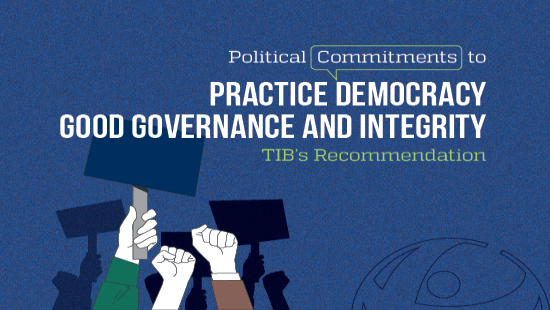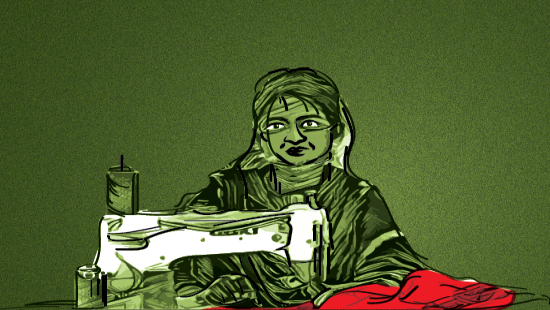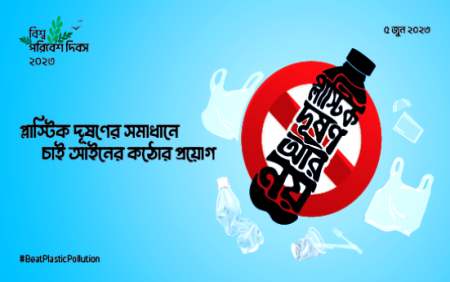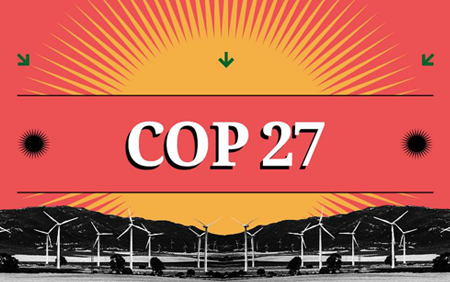Published: 28 December 1998
The 1998 Laurentian Seminar
Controlling Corruption -The Need for an Integrated Approach
Parliamentary Democracy in Bangladesh is in its infancy. The last general elections took place under a non-partisan neutral caretaker administration. This development is seen as unique and if it is a means to elect governments in a free and fair manner then it could even be adopted in other countries where democratic principles are yet to take root.
Transparency International - Bangladesh (TIB) has put together an Ideas Paper in order to develop an anti-corruption strategy. The main themes of the document are to develop indigenous ideas at grassroots level, to build coalitions among like-minded civil society organisations and individuals, to encourage and strengthen watchdog organisations in order to exert pressure for better service delivery and to engage in participatory research to increase awareness and develop advocacy programmes around specific issues. TIB considers the role of parliament to be crucial in order to bring about greater accountability and transparency. TIB would, therefore, encourage the formation of pressure groups in the political constituencies over a period of time in order to instigate changes in their own communities by encouraging greater political commitment, a subject matter that we will be discussing in the next sitting.
As part of TIB's effort to formulate a future strategy it organised on 14th & 15th of July 1998 a workshop in Dhaka ('Workshop on Conscientisation of the Civil Society in Strengthening Integrity') to discuss the Ideas Paper as an input to the exercise of strategic planning. One of the sessions of the workshop was entitled 'The Role of Parliament in increasing Transparency and Accountability'. Leading parliamentarians, lawyers and journalists were invited to discuss the role of parliament in increasing transparency and accountability. At the very outset of the session it was accepted that lack of transparency and accountability in parliamentary proceedings negates good governance.
To-date one government, the present one, has been elected under a caretaker administration. Bangladesh has adopted the Westminster form of government, with variation on the theme, and the Parliament is considered to be sovereign. A majority of MPs in the Parliament can enact legislation and only in the case of constitutional amendments two-third majority is required. Participants of the workshop suggested that the real problem for the emerging parliamentary form of government in Bangladesh is the relationship between the political parties and the lack of effective local government. Other peripheral institutions to the parliament, such as, the media, the library in the parliament, the reporting of parliamentary proceedings, among other things, have to be improved. The general consensus of the participants was that Bangladesh is yet to develop the parliamentary ethos.
One of the first steps that could be taken in order to achieve that would be to motivated the MPs to spend more time in the parliament and engage in constructive debates in the House. Nowadays the Speaker of the parliament is faced with the embarrassing situations where the required quorum is not achieved.
The other general consensus that emerged was that the committee system should be made more effective; a recent encouraging development has been that private member can be the chairman of such a committee, known as the select committee, and the relevant departmental minister only sits as a member. There are thirty-five select committees in the Bangladeshi Parliament. Among its drawbacks is the fact that such committees deliberate in camera. In contrast to the lack of public scrutiny of the select committees the MPs in Bangladesh play to the gallery as the proceedings are broadcast live on the radio, and MPs are always trying to out perform each other. Much recrimination and irrelevant issues take up the valuable time of the parliament, an expense borne by the tax payers (or donors). But in reality the politicians have very little power to bring about real change to the lives of the constituents. The public is fully aware of the fact that all roads lead to the Secretariat, the hub of bureaucracy, and not to the Parliament. Ideally the civil servants should be accountable to the Parliament and particularly to the select committees. These select committees could act as watchdog bodies. The Parliament could also make the enactment of laws transparent through the publication of White Papers prior to the enactment of proposed laws. These were some of the proposals which were put forward by the participants.
As stated above the present problem of the Bangladeshi parliament is not with the system as it exists but with the arrangements that are made between and among the MPs of different political parties. In the final analysis the question is 'how can pressure be put on the parliamentarians and Parliament?' In the private sector there is a constant pressure to deliver services. Can the same be achieved within the context of parliament?
MPs present in the workshop felt that they were already under pressure from their constituents. A MP is directly accountable to his/her constituents. The coverage of the parliamentary proceedings on the radio makes the process transparent. Awareness of people regarding parliamentary proceedings will increase transparency and accountability. MPs felt that they should be given more time and with the passing of a few general elections the transparency and accountability will increase. Only then those changes will come about. Budget is placed before the parliament every year and the President's speech is delivered at the beginning of the session. Question time is also very important, which has been given greater prominence by the present Prime Minister. The sum total of all these would increase transparency and accountability. Enactment of certain laws, for example, perjury law applicable to MPs, can also increase transparency and the support of the media and the civil society would be a critical factor in that process.
An Opinion Poll conducted by a non-governmental organisation, DemocracyWatch, published on 13th July 1998, revealed some interesting results: 54% respondents said that they do not know what is going on in the parliament, 46% knew about parliamentary proceedings. Of those who knew, 77% thought parliament is not functioning in the way it should and 23% thought it is functioning in the way they would like to see. 37% respondents said that their MPs had not done anything in their area, 34% were more or less happy about their MP's performance, 19% thought their MPs performance well, 10% did not know anything about their MP's performance.
To be even-handed, lack of transparency and accountability is not confined to politics but all pervading as revealed in the TIB survey on the level and extent of corruption in Bangladesh. But unlawful expenditure during local and national elections and the use of muscle power is largely to be held responsible for the lack of political commitment, and at times this is reflected in the parliamentary proceedings. Furthermore, the political parties themselves are devoid of democracy. Each MP is suppose to disclose information to the Election Commission but this is not done. Such matters should be brought to the notice of the general public. Public should be able to scrutinize such disclosures. Participants even suggested that the political parties should disclose their income and expenditure.
The best and toughest means of accountability for MPs is the judgement passed at the general elections every five years. The electorate should be given 'report cards' on the performance of the MPs in order to arrive at informed decision. The future planning of TIB's activities based on the Ideas Paper may contribute to that end. TIB believes that pressure from groups of citizens of Bangladesh working from their own concern and agenda will have a much more significant impact. The lesson learnt from the recently published survey is that if TIB's work is to be viewed as relevant and credible to the public, to the press, and to the government officials and other influential leaders, then TIB needs to represent an indigenous perspective.
"TIB also recognises that while grassroots movements can be mobilised and coalitions can be built, in the final analysis corruption within the government sectors can only be adequately addressed by the government itself. To meet this goal TIB envisions functioning as a pressure group to continually call attention to the corruption that exists, thereby applying pressure to government to change." (Ideas Paper, page 9, paragraph 6)
-Manzoor Hasan






